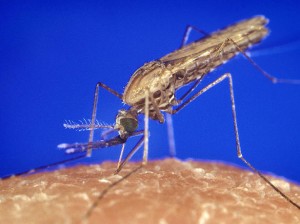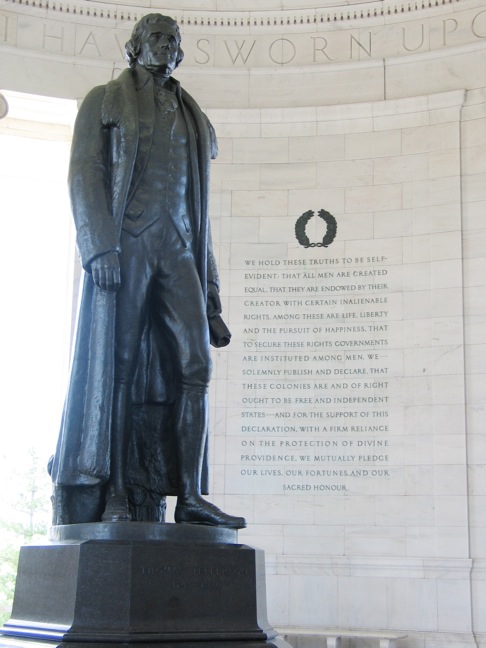 There was a story on NPR last week (see this link) about how a scientist at the University of Maryland, Raymond St. Leger, has found a way to essentially infect mosquitos with a fungus that kills the malaria parasite within the mosquitos without killing the mosquito itself (at least not very quickly). This last point is important, as, since the death is slow, the mosquito won’t adapt to the fungus so quickly, evolving to fight it. By infecting the mosquitos thus, the malaria parasite is killed and the mosquitos don’t fight back.
There was a story on NPR last week (see this link) about how a scientist at the University of Maryland, Raymond St. Leger, has found a way to essentially infect mosquitos with a fungus that kills the malaria parasite within the mosquitos without killing the mosquito itself (at least not very quickly). This last point is important, as, since the death is slow, the mosquito won’t adapt to the fungus so quickly, evolving to fight it. By infecting the mosquitos thus, the malaria parasite is killed and the mosquitos don’t fight back.
It got me thinking (as I’m sure it has people who work for the government) that maybe using this kind of technology, one could do other things with mosquitos. Two things jump to mind…
First, the good: why not infect the mosquito with a fungus that, instead of or in addition to killing the malaria parasite, also injects it with some kind of medicine, maybe a vaccine to say measles or antibiotics to help against maybe a cholera outbreak that occurs during some natural disaster. The mosquitos would be released into the population, acting as mini flying syringes, and inoculate or administer drugs to the populace. Large portions of the populace could be treated easily and quickly, without the need for doctors to visit each individual person. And the mosquitos could likely access more remote areas that would be hard for doctors to reach. Of course, one could easily imagine abuses, which leads to second point…
If the mosquitos could be infected with a fungus that conveys some benefit, they could also be used in more nefarious ways. They could transmit a disease itself, something that could be used to knock out a chunk of a population or army during wartime. In the very least, if they transmitted the flu, it would weaken an army such that opposing forces might be more likely to be victorious in battle. And, possibly, the disease would be so severe as to just directly kill the opponent.
As with most things, it isn’t the technology itself that is good or bad, but the uses of it. It seems to me that “mosquito doctors” have a lot of potential beyond just eradicating malaria, but “mosquito warriors” could devastate not only the opposing army, but whole populations.
